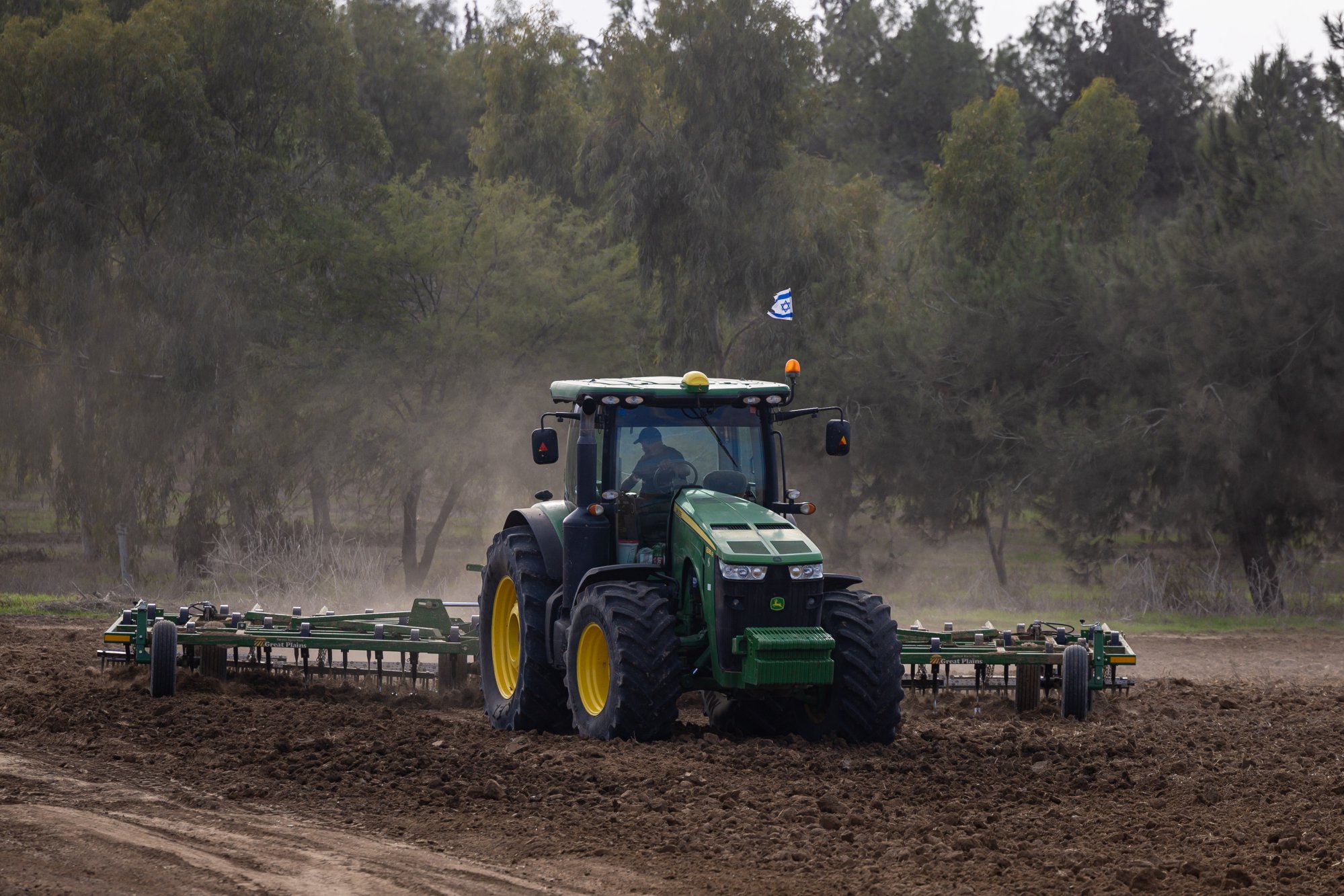Despite dangers, Asia’s migrant workers return to Israel, risk it all as Gaza war grinds on
[ad_1]
Still, Panaphan is adamant his December 4 return to the Middle East will go ahead, as a rare window opens to beat the poverty trap that shapes the lives of millions of rural Thais.
“Opportunities don’t wait … the bank does not wait either,” he said from his Phrae hometown. “The house and car loans are in my father’s name so the debt belongs to my father. I earn a living on behalf of the whole family and I’ll work to pay off all the loans.”
On Thursday, 17 Thais returned to Bangkok, released by Hamas in prisoner exchanges – returning tired but delighted to have survived.

Before the war, around 30,000 Thai workers were registered to work in Israel, earning around 50,000-60,000 baht (US$1,420-US$1,700) a month, many times the salary in the farming communities they left behind. An unknown number worked illegally – including at least four of the hostages, whose employers reportedly did not initially want to report them missing.
Conditions on the farms, where they live in spartan purpose-built blocks, have never been easy, workers and NGOs say, with complaints of unpaid overtime and debts to brokers despite government-level labour-supply agreements.
But the push factors from Thailand remain compelling: a country whose rural workforce exists a world away from the wealth of Bangkok, tied to low incomes by poor education and never far from the teeth of loan sharks who charge 20-30 per cent interest on short-term cash advances to cover emergencies.
In upcountry villages, family debt, car and house repayments, school fees and filial duty continue to drive young farmers, whose daily wages at home rarely tip over US$10, to migrate.
“Who would still stay in Thailand for such low wages?” Panaphan said. “In Israel, I can make 1,500-2,000 baht [US$42-57] a day.”
Thai Muslim group takes credit for release of Gaza hostages after Hamas talks
Thai Muslim group takes credit for release of Gaza hostages after Hamas talks
Yet returning to the war-torn country is ill-advised, according to Thai authorities, after weeks of tireless shuttle diplomacy by Thai Foreign Minister Panpree Bahiddha-nukara to release the hostages and evacuate thousands more workers from Israel.
“The government has spent a lot of resources to help Thai workers escape the war zone,” said Veerapong Injai, of the Phrae Labour Department in Panaphan’s home province.
“We do not encourage any of them to go back for now.”
Danger pay

They are hoping to send money back to a country in economic ruin and where a cost of living crisis has sent the price of everything from baby milk formula to medicines soaring.
About 20,000 Sri Lankans will soon reach the Middle Eastern nation, which already has around 8,000 workers from Sri Lanka, the majority working as carers and in farming.
“There is no trend of Sri Lankan workers in Israel returning. We’re ready to bring them back anytime they like,” Labour Minister Manusha Nanayakkara told reporters in October.
Thousands of Sri Lankan workers set to depart for Israel despite war
Thousands of Sri Lankan workers set to depart for Israel despite war
The Sri Lankan government is keen to harvest the benefits of remittances as well.
Since 2019, Sri Lanka has been struggling to deal with a severe foreign debt crisis, high inflation, rising fiscal deficits, and a weakening currency. More than 300,000 Sri Lankans have left their home country seeking greener pastures overseas.
“Sri Lankans prefer to stay in their jobs [in Israel] … and the government does not encourage them to return,” said Adhikari Jayaratne, president of the workers’ union body Confederation of Public Service Independent Trade Unions. “No government restrictions are imposed against any worker who wants to seek employment in Israel.”
Colombo’s decision has sparked a heated debate inside the country over the safety and value put on the lives of migrant workers – many of whom are survivors of a civil war that lasted a quarter century until 2009.
“Because they had to work in farms which had been vacated by the poor Gaza [Palestinian] residents. These people are going to be sent there; their security is not guaranteed,” said parliamentarian Rauff Hakeem in a speech on November 23.
But the government has defended the move, saying it was part of an existing labour agreement with Israel. Punsara Amarasinghe, a scholar on international law and Israel-Sri Lanka relations, said Israel remained a “popular destination” due to the labour deal processing workers to Israel, while reported discrimination in other Middle Eastern countries provided another incentive.
“They find Israel as manna, as their working rights are protected,” Amarasinghe said.
In the rush to find new staff, however, Israeli labour advocates fear workers’ rights may be trampled.
Before the conflict, migrant workers faced a plethora of issues including unpaid overtime and cramped accommodation that was either too hot or too cold, according to Yahel Kurlander, a migration scholar at Tel-Hai College in northern Israel. Thai workers are usually housed together in caravans or containers and when danger strikes normally have to race to a mobile shelter rather than safe rooms or bunkers. That meant “the workers were more vulnerable to attack” on October 7, Kurlander told Agence France-Presse.

High risk, high reward
In Thailand’s northeastern Khon Kaen province, the weeks since October 7 have been hard on the small, close-knit community of Khok Samran which has been missing a resident, the only Thai woman taken captive by Hamas.
Boonyarin Srijun, 56, has waited for the return of her daughter Natthavaree, who was released in the flurry of activity of recent days amid the ceasefire between Israel and Hamas that ended on Friday.
“They felt they were nobody in their own country but to be hired by employers overseas was something real, something that turned them into family breadwinners,” Boonyarin said, explaining her children would remit around US$2,000 a month.
“But I want them to come back home to settle and be together in this house they all helped pay for.”
‘I danced’: Thai mum cries tears of joy after daughter released from Gaza
‘I danced’: Thai mum cries tears of joy after daughter released from Gaza
As the village prepares to celebrate Natthavaree’s return, its headman says it is no surprise that the people of Isaan are still seeking to leave, even to Israel, amid the roulette of life in the poor but populous region.
“We’d rather find our way out of poverty than live a beggar’s life,” 60-year-old Shane Rienthong said.
His own fate has been defined by migration, working in Israel, South Korea and Taiwan.
“We go overseas to work because we don’t have any education,” he said. “Good jobs that pay well in Thailand only pay the educated people. Our only asset is our labour.”
[ad_2]
Source link





